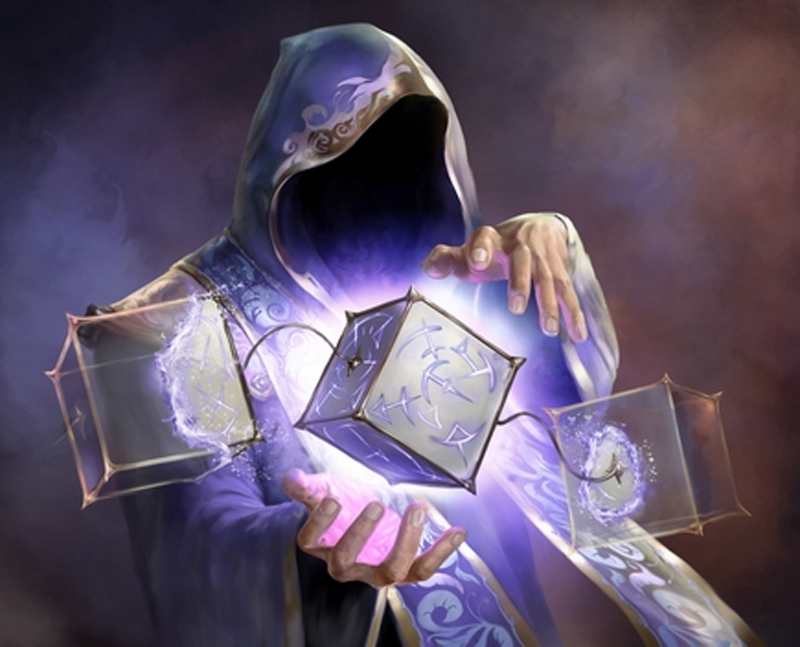 EMERGING TECH
EMERGING TECH
 EMERGING TECH
EMERGING TECH
 EMERGING TECH
EMERGING TECH
The Gaming Standards Association and Gaming Standards Association of Europe today announced the creation of a new technical committee dedicated to creating standards for the use of blockchain distributed ledgers in the gaming industry.
Blockchain technology uses cryptography and distributed ledgers to create highly trustworthy, tamper-proof and transparent transaction records. The technology has been sought after by industries such as financial technology, healthcare recordkeeping and logistics as a way to safely protect and store records while also allowing them to remain open to regulatory authorities without fear of leaking proprietary information.
GSA President Peter DeRaedt said that with the ever-increasing interest in blockchain across industries and within gaming itself, the technology has shown that it is poised to revolutionize data sharing and as a result, it falls within the GSA’s mission to provide a framework for standards for its use.
“GSA was created to help drive innovation in the gaming industry for the benefit of manufacturers, suppliers, operators and regulators,” said DeRaedt.
The embrace of blockchain by the gaming industry has been cautious and led primarily by startups looking to carve out a niche with other opportunities explored by engine developers.
Trading card game Spells of Genesis for mobile went into beta in 2016 showing off a design for a game that uses blockchain technology to create tradable digital assets. Published by EverdreamSoft SA, SoG uses the blockchain to make the trading cards that the game runs on tradable and true limited editions. Real-life tradable card games depend on limited prints of cards in order to give cards value. A blockchain can show that there can only be 100 of a given digital card by providing a transparent, distributed record of ownership.
Launched in November, Cryptokitties allows players to own, trade and breed cartoon cats by linking them to the Ethereum blockchain. Since a limited number of the kitties exist and their traits can be “bred” into other kitties, and players collect these cats, a cat with desirable traits can become quite valuable in the trading game.
“Many industries are evaluating how the blockchain technology can enhance data sharing security and increase operational transparency,” GSA Europe Managing Director Mark Pace said. “GSA will launch this new committee and evaluate the creation of a gaming industry standard.”
These standards would be spread by a volunteer collaboration of 1,600 volunteers and more than 190 companies that make up the GSA’s membership. The organization has used its expertise and membership to create 15 standards and nine committees during the 20 years since its launch. Such standards would be useful now as the use of blockchains in the gaming industry continues to emerge.
Attempts to produce digital marketplaces for in-game assets have also emerged using blockchain technology as a foundation. DMarket announced a decentralized gaming marketplace for game developers to create blockchain-based game assets that could be traded across games and platforms in an effort to upset the current digital goods markets. Switzerland-based BLOCKv also launched a blockchain development platform for digital goods, using blockchain technology as the basis for digital goods such as virtual items in games such as swords, spaceships, cars and houses, as well as licenses for streaming movies and digital books.
Highly reputable and widely used game engine developer Unity Technologies SF partnered with GameCredits Inc. to accelerate the adoption of digital assets within gaming by providing a blockchain currency-based platform. Another social gaming developer FlowPlay Inc. chose to partner with Walt Disney Co.-incubated blockchain Dragonchain Inc. in order to develop a secure monetization platform for casual and social games.
The mobile gaming industry alone is estimated in excess of $40.6 billion in global revenue at the end of 2017, which is up from $30.1 billion in 2015, according to Statista. The impact of blockchain adoption has yet to be seen in the gaming industry as a whole, which brought in $2.94 billion in 2017 with console microtransactions, and free-to-play games on the PC showed a worldwide market revenue of $16.9 billion.
Between mobile, console and PC free-to-play game markets, blockchain-based monetization and digital asset schemes will most likely show the largest potential for growth and also represent where most of the industry attention is currently focused.
Support our mission to keep content open and free by engaging with theCUBE community. Join theCUBE’s Alumni Trust Network, where technology leaders connect, share intelligence and create opportunities.
Founded by tech visionaries John Furrier and Dave Vellante, SiliconANGLE Media has built a dynamic ecosystem of industry-leading digital media brands that reach 15+ million elite tech professionals. Our new proprietary theCUBE AI Video Cloud is breaking ground in audience interaction, leveraging theCUBEai.com neural network to help technology companies make data-driven decisions and stay at the forefront of industry conversations.